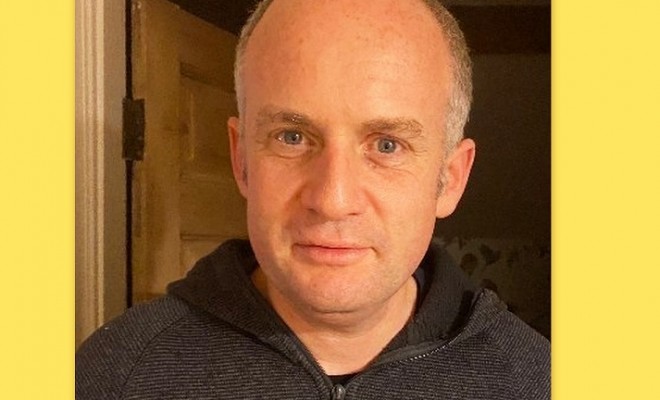
Actually doing it
Recently, I’ve been pondering the puzzle I think of as The Problem of Actually Doing It, though it’s also been more elegantly termed “the knowing-doing gap.” Both phrases are pretty self-explanatory, and the problem is familiar to virtually everyone on the planet, but just to spell it out: it’s unfortunately much easier to know what it is you need to do differently – in order to accomplish what you want to accomplish, or simply to enjoy life more – than it is to actually do those things.
For instance, perhaps like me you’ve experienced an epiphany when grasping the truth (which I write about in Four Thousand Weeks) that there’ll always be too much to do – that a finite human life is unavoidably a matter of not doing all sorts of things that would be worthy uses of your time. This sort of realisation can feel like a heavy burden being lifted, an injection of deep relief. You get to give up the futile, stress-inducing struggle to do something completely impossible – to “master your time” – and to pour your attention into a handful of truly meaningful things instead! Everything will be different from now on! The path ahead is clear!
Then a few days pass, the emails and to-dos mount up, a couple of unexpected events throw your schedule off a bit… and you’re straight back to your old ways, frenetically attempting to do everything, and in the process inevitably postponing until later precisely the things you care about the most.
Spoiler alert: I believe the rest of this email contains some genuinely useful thoughts about the knowing-doing gap, but it won’t provide a solution. Think about it: how could any piece of writing – or YouTube video, or advice from a friend, or anything – ever propel you over this final step into implementing personal change? However wise it might be, you’d still need to figure out how to implement that advice. And if you stumbled on any advice about doing so, you’d need to implement that advice. And so on for infinity. In the end, when it comes to changing how you do things, you’re on your own.
This is where it’s easy to envy certain traditional societies, because for all their many downsides, there’s no better way to guarantee that you’ll act in a particular way than to already be embedded in a social structure designed to get people to do so. For example, if you conclude that your work/life/sanity would be well-served by taking a day a week to disconnect from social media, get outdoors, and meet up with friends, you can devise all sorts of schemes to make that happen; but none of them will come close, in terms of effortlessness, to living in a culture where everyone observes the Sabbath, the shops are shut, and there’s social pressure to go with the flow.
Even so, while I can’t shove you all the way across the knowing-doing gap, I can pass on a few things that have helped. One is to remember that making changes rarely feels comfortable at first. This can be confusing, because moments of insight generally feel good, so it’s natural to expect that putting them into practice would feel good, too. But they don’t, because worthwhile change is counter-instinctual: it entails pushing back against attitudes that have grown comfortably habitual, so it’ll feel, at least in the early stages, like putting on ill-fitting clothes. And so sometimes crossing the knowing-doing gap is as simple as not expecting the experience to feel good at first – and thus not being thrown into despondency when it doesn’t.
Another important guideline is to choose the right comparison when evaluating your progress. After you experience a sudden epiphany, it’s easy to conjure a fantasy of how life ought to look from now on, and then to judge your halting, daily progress as pathetic by comparison. Obviously, however, the better comparison is with what you did in the immediate past. If your goal is, say, to do more focused work, the question isn’t whether you got distracted more than the imaginary perfect worker in your head, but whether you were slightly less distracted than last week.
The closest thing I’ve come to a master key here, though, is also the most ironic: the most reliable way to cross the knowing-doing gap is to realise you don’t actually need to change at all. What usually stops people crossing the gap, I think, is that they make the stakes too high. Somewhere deep within, you persuade yourself that your basic sense of adequacy or self-worth depends on becoming more focused, or finally getting round to the project you’ve been postponing, or getting in shape, or whatever it might be. No wonder it feels so daunting to get stuck in, essential to get it absolutely right, and horrifying to contemplate that it might not work out… and therefore easier, all in all, not to bother in the first place, or to give up at the first sign of setback.
I suppose there are a few situations where you really do need to change: if a substance abuse problem or a violent relationship is putting your life in danger, for example. But these are exceptions. In the strongest sense of the word “need”, you don’t really need to become more focused, or realise your creative potential, or be more patient with your kids. You wouldn’t spontaneously combust, or cause others to die, or be judged the moral equal of Vladimir Putin, if you never got round to any of these things. From a cosmic perspective, they’re extras: non-essentials it would be great to do if you could.
And that, at least in my experience, is when it’s suddenly much easier to cross the gap – because you’re no longer thinking of it as a terrifying chasm between high cliffs that you absolutely must get over, in order to escape the rabid tigers snapping at your heels. It’s just something to try jumping for the fun of it. You’re fine as you are – and you have the chance to get better. So why not try? On the days I’m successful at seeing things from this angle, Actually Doing It stops seeming like a heavy, difficult, forbidding, intransigent sort of problem; instead, it becomes a prospect too enticing to resist.
oliverburkeman.com




